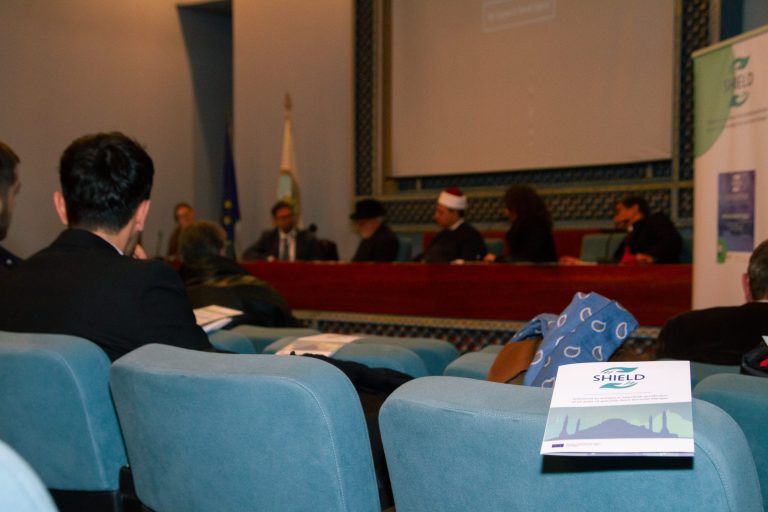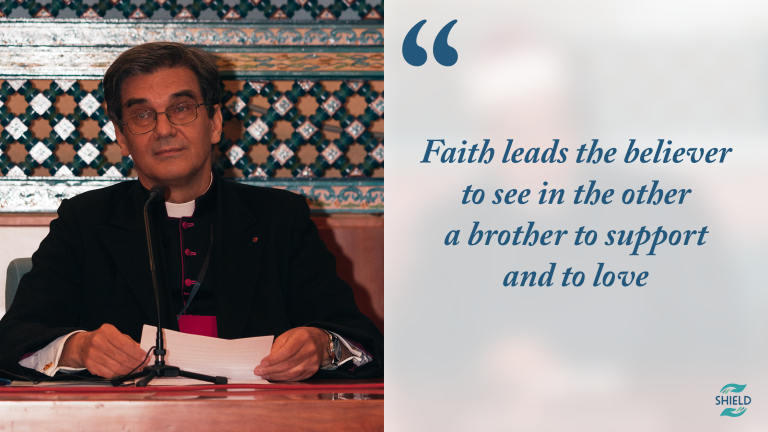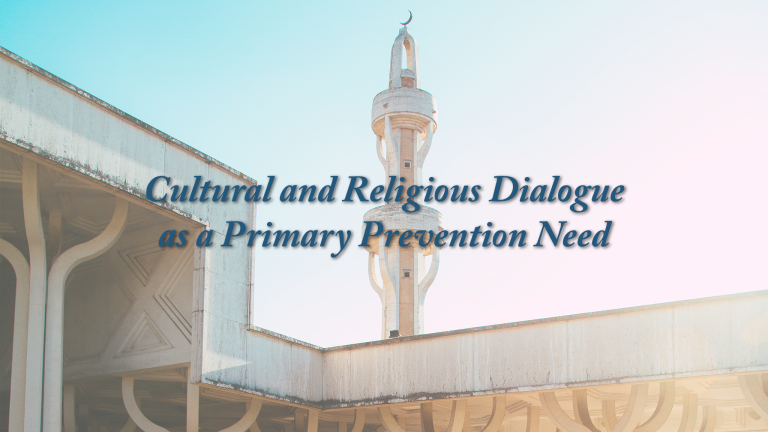Since ancient times, sacred and religious places have been the pivot on which the ideas and cultures of human societies have evolved, playing a mediating role between the human and divine dimensions which included a pre-juridical function in those prescriptions aimed at regulating and controlling violence.
The modern process of secularization and separation, gradual but never clear-cut, between the political sphere of the state and the religious sphere of society or of the individual, and the related legal norms, on the one hand, and moral and ethical norms, on the other, have placed the state as solely responsible for the law, with its monopoly on the use of force, and therefore as regulator and controller of violence. However, religions and their spaces have not lost their value: believers and non-believers of all communities recognize them as a strong symbolic value around which the common sense of identity feeds both national and social cohesion. By guaranteeing the safety of all its citizens, the state can therefore only provide particular attention to the protection of places of worship, precisely because of the strategic role they play in keeping the community it governs united and saved.
This aspect poses places of worship, together with palaces of political power, as targets to be hit, conquered and sometimes destroyed by internal or external enemies. The cases of the destruction of archaeological sites in Afghanistan by the Taliban and in Syria by ISIS are just two of the most striking examples that recent history has presented to us demonstrating the impact and the deep wounds that such attacks cause to the historical and cultural identity of a people.

The European Shield project already from its name implies its purpose: to put the “shield” at the center and in favor of places of worship. The underlying European policies and this project arise precisely from the concern to intervene preventively in the face of the attacks that these places have suffered in recent years by various forms of violent extremism. The analysis of these attacks was in fact the first undertaking of the project. The development of strategies and tools to mitigate risks and improve safety and security strategies of such places is what Shield is developing, involving a wide range of stakeholders. Among the latter, the representatives of the three main monotheistic religions played an important role in the first seminar organized by the project partnership which took place in Rome in December 2022.
The three representatives who attended – the imam of the Great Mosque of Rome, Nader Akkad, Rabbi Scialom Bahbout, president of the International Center for Systemic Research, and Msgr. Jean-Marie Gervais, Coadjutor Prefect of the Chapter of the Papal Basilica of St. Peter in the Vatican and president of the Tota Pulchra Association – have launched a message of common respect and mutual brotherhood which has its central fulcrum in the interreligious dialogue to always be kept open and above all the conflicts that are now increasingly internationally interconnected.
What follow is the speech given by Archbishop Jean-Marie Gervais on the occasion of the Shield workshop.
Dear Brothers and friends, I am very honored to have been invited to address a brief greeting for the opening of the first workshop organized by SHIELD here in Rome, right at the most imposing mosque in the West, to strengthen the interfaith protection of places of worship from terrorist danger.
At St. Peter’s Basilica in the Vatican, where I play an eminently liturgical role but also in welcome pilgrims and religious tourists, the importance of safety is primordial but it is even more crucial for the sacred place.
Their importance was underlined by Pope Francis during the audience of 28 September 2020 on the occasion of the 75th anniversary of the foundation of the Vatican Inspectorate. Supervising St. Peter’s Square and the Pope’s safety is a great responsibility, which an organ of the State Police carries out – the Italian one – which operates on another state, the Vatican one. Every day the policemen must guarantee security in St. Peter’s Square and in the entrances to the Basilica but without disturbing the spirituality of the place.

I would say, in a more general way, that in the last twenty years, characterized by the arms race, by moral degradation, by discrimination, by terrorism and other forms of extremism and by wars, international institutions and religious leaders could not fail to get involved in a joint action to enclose the flow of hatred, division, terrorism, discrimination with the levees of tolerance, understanding and cultural and religious dialogue.
In Baku, in 2016, Pope Francis clearly stated that religious leaders are called on the one hand to denounce “violations against human dignity and against human rights”, but also to unmask “attempts to justify all forms of hatred in name of religion and to condemn them as an idolatrous counterfeit of God”.
The historical importance of the document “Human Fraternity for World Peace and Common Coexistence” signed on 4 February 2019 in Abu Dhabi by the Grand Imam Ahmad Al-Tayeb and Pope Francis is evident here. It is a very strong invitation to reconciliation and brotherhood among all, believers and non-believers, and among all people of good will.
It is a call to repudiate violence and extremism, a call to practice the values of tolerance and brotherhood promoted and encouraged by religions. In fact, the document begins with these words: “Faith leads the believer to see in the other a brother to support and to love”.
Following this great gesture of reconciliation at the highest religious level, to concretely promote cultural and religious tolerance, the UN established the World Day of Human Fraternity on 21 December 2020. The Day is celebrated every year on February 4, the anniversary day of the Abu Dhabi Document itself.
English translation of the original speech in Italian published here.

